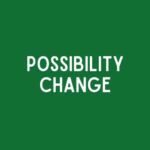One of the most disturbing things in my life right now is that I know several people who feel the need to drug themselves in order to go to work. In the morning, they drink, use prescription drugs, or even take painkillers or sedatives to make sure they stay composed, and keep themselves from having “emotional outbursts,” while in the office. Without a little something to take the edge off, they don’t feel like they could function.
These may sound like extreme examples, but in some way most of us are “taking the edge off” to deal with the stresses of working and other aspects of our lives.When we get home, for instance, most of us immediately turn on the computer, radio or TV, craving an escape from the anger, fear or despair we experience in our working lives. Like “hard drugs,” these activities temporarily distract us from, or numb us to, how we’re feeling. The fact that most of us do this in the evening to “wind down,” as opposed to doing it in the morning to “gear up,” doesn’t seem like a very meaningful distinction to me.
While this practice may get us through the workday, and have others think we’ve “got it together,” it disconnects us from our bodies and the sensations arising in them, and thus cuts us off from an important source of wisdom that can guide us in improving our lives.
Our Emotions Give Us Valuable Information
One function of our emotions is to signal to us when we’re in a situation that isn’t serving us, and when it would be best to leave or change what we’re doing. As psychologists Robert Biswas-Diener and Ben Dean write in Positive Psychology Coaching, “emotions are signals that tell us how things are going. Engagement at work, for instance, lets us know that our job is challenging and satisfying.” When we numb ourselves to those sensations in order to stay composed or look “normal,” we’re unable to receive and benefit from our bodies’ wisdom.
For example, if we feel a crushing despair each time we sit down in front of the keyboard at our jobs, our bodies may be telling us we aren’t achieving our full potential, or living our purpose, in what we do for work. Or, perhaps this is a signal that there’s some other issue in our lives that needs to be resolved. Maybe, for instance, our bodies are communicating to us that, to feel more peaceful and live in integrity, we need to tell the truth to someone close to us rather than holding it back.
Whatever the emotional signal means, it would probably serve us to listen to it. As psychologists Leslie S. Greenberg and Sandra C. Paivio put it in Working With Emotions In Psychotherapy, emotions “can be brought into awareness to enhance the way in which we evaluate our needs, desires, goals, and concerns.”
Of course, this is not the perspective most of us take on our inner wisdom, particularly when it takes the form of “negative feelings” like frustration and despair. Most of us have come to perceive having these feelings as dangerous. The way we tend to see things, it’s almost like we’d die or be seriously hurt if we let ourselves fully experience what we’re feeling. Or perhaps we fear that we might embarrass ourselves or appear weak if we really connected with our anger or sadness. These fears are the reason we drug our emotions away, or turn to distractions like the TV, radio and Internet to take our attention off the sensations in our bodies.
Some Practices For Reopening Ourselves To Sensation
How do we learn to start listening to our bodies’ wisdom, rather than distracting ourselves or running away from it? The idea of letting ourselves fully experience our emotions while we’re at work, with our intimate partners, or in a public setting may sound too scary to many of us. This is why I think taking up some physical practice for reconnecting with our bodies and how we’re feeling is a key first step.
Yoga is a great example of this type of practice. The poses and conscious breathing we do in yoga require us to pay attention to parts of our bodies that may be outside our awareness most of the time. Reconnecting with those areas that may feel numb or distant, whether we’re talking about the chest, legs, groin or somewhere else, can help us listen to what those areas of our bodies are trying to tell us, and use that wisdom to guide the changes we make in our lives.
This may sound overly abstract, so let me give you a concrete example. Believe it or not, doing yoga actually helped me change careers. A few years ago, I was an attorney at a law firm. I harbored dreams of doing something more aligned with my true calling, but I felt too worried about the risks of making a transition. When those yearnings came up, I’d usually dive into a book or socializing to take my mind off them.
One day, at the suggestion of a friend who noticed I needed some stress relief, I took up yoga. As I became more comfortable with the poses I regularly did—particularly those involving deep knee bends, which at the beginning were torture to me—I found myself getting more comfortable with anxiety and other emotions I’d avoided feeling in the past. The more I learned to tolerate stretching my muscles, it seemed, the more I could tolerate, and transcend, my doubts and fears.
The tolerance for discomfort I developed through yoga reached a point where I felt able to handle the risks of making a career change. If I’d kept running away from that discomfort, as I’d done in the past, I probably wouldn’t have become able to stomach a transition.
Meditation is another wonderful tool for learning to receive the messages our bodies are sending us. When we sit alone in silence, even if we don’t use any specific meditation techniques, we have no choice but to feel sensations in our bodies we may be avoiding in our normal routine. We can’t switch on the TV or go have a beer to take our attention off how we’re really feeling—we have to fully experience whatever thoughts and emotions come up.
Some people who try meditation report feeling bored. But what is boredom, really? I suspect that, if you pay close attention in moments when you’re feeling bored, you’ll notice a striking resemblance between the feeling of boredom and “negative emotions” like anger and fear. To my mind, when we’re “bored,” we’re simply experiencing sensations we don’t pay attention to the majority of the time. As psychologist Bruno Bettelheim put it, “boredom is a sign of too many feelings, too deep and too hard to bring to the surface.”
By the same token, the more we become able to tolerate intense, uncomfortable sensations like boredom, the more we develop the ability to take risks and explore new possibilities in our lives. Perhaps, as I did, we might overcome anxiety around changing careers. Or maybe we’ll transcend the fears that may have prevented us from having satisfying intimate relationships in the past. Meditation can affect our quality of life in many unexpected ways.
Learning to hear the messages our bodies are sending us can be an uncomfortable process at first. Our bodies may not tell us what we want to hear—if we’re unsatisfied with some situation we’re in, or we have unresolved anger or sadness, for instance, we may at first wish we’d kept ignoring our inner wisdom. But if we want to truly bring peace and focus to our lives, reconnecting with that wisdom is essential.






I always try to remember that there is never a reason that I have to be unhappy. If I’m unhappy then I need to have a look at what’s going on inside.
Interesting what you said about boredom. Personally I think it is simply what we call our state when we want to be doing something other than what we are currently doing. Which occurs because we are not being able to stay in the present moment.
Hi Jarrod — thanks for your comment. I like your perspective on happiness — it takes some discipline to see that we’re really the source of our own level of happiness but I think it’s definitely worth it. I think my view on boredom is similar to yours, in that I see those old emotions that come up when we’re bored as what motivates us to restlessly seek out more in our lives and get dissatisfied with what we’re doing right now. — Best, Chris
Awesome advice. I especially liked the stuff about meditation and boredom.
It saddens me, too, that so many people around the world force themselves (either through drugs, drink or sheer willpower) to suppress their emotions in order to get through the day. Before I left my job in tech support, I was getting to the stage where I regularly would walk through the corridors at work wanting to scream or to break down in tears. The very negative emotions associated with my job gave me the boost I needed to change careers and become a freelance writer.
I’m particularly intrigued by your view on boredom. I dislike the feeling of “not doing anything”, but I wonder whether this is partly because I tend to feel guilty when I’m not being “productive”. On which note, I should really be doing some work…
By “drugging” our body with drugs or caffeine is one way to tune out our inner voice. Yet it is this inner voice that we must follow to attain happiness and a better life.
Vincent
Personal Development Blogger
(I got an error when I submitted my last comment — my apologies if this turns out to be a duplicate)
Hi Seamus — thanks for the appreciation. I’m always amazed at what a great opportunity for personal growth boredom can present.
Hi Ali — I always appreciate the openness of your writing. I’m glad you made the decision you did.
Hi Vincent — thanks for your comment. Sounds well put to me.
I agree, too many people are using things like TV, drinking, and drugs to numb the pain, instead of trying to solve whatever problems are causing it.
-Dan Malone-
I used to clutter my mind so much with thoughts that it was impossible to be aware nor listen to any inner wisdom. It took me a long time to be able to meditate. But once I could, I started noticing a lot of things that I normally would have missed.
Unfortunately, Yoga and meditation are still associated negatively as esoteric and mystical.
The root of most suffering, in my humble opinion, is that most people are afraid of facing their inner self.
“All men’s miseries derive from not being able to sit in a quiet room alone.” ~ Blaise Pascal
“Every one rushes elsewhere and into the future, because no one wants to face one’s own inner self.” ~ Michel de Montaigne
Wow, there sure are a lot of recovering lawyers out there.
Thanks for sharing your story Chris. I couldn’t agree more with your two suggestions: yoga and meditation. I have taken up both in the past year and have found they have been very beneficial to me.
One suggestion for my readers: if you have tried meditation and yoga in the past and they haven’t felt right, try again. I tried yoga for the first time a few years ago and it just didn’t seem right (eg I was the only guy there). Fast forward a couple of years and I tried it again. This second time I was instantly hooked.
Hi Dan — thanks for your comment. It’s always incredible to me how much we can accomplish when we stop distracting ourselves from recognizing what’s working and what isn’t.
Hi Evelyn — thanks for your comment — I’ve found the same changes happening in myself.
Hi Kent — yes, even here in Northern California, when I talk to “regular” people with no spiritual leanings about meditation, I get that kind of reaction. Yoga seems like a good portal into meditation, since “normal” people can approach yoga as a form of exercise and gradually realize the other benefits it offers.
Hi Peter — yeah, I had the same experience with yoga. When I approached it purely as a form of stretching or exercise I could add to my gym workouts, I didn’t find it as fulfilling as I did when I understood what yoga is really about.
So much to say about embracing where we are now…about my passion for yoga and meditation and then how I added Focusing as a way to stay connected to my own inner voice and what my body knows about my living experiences.
http://transformativeliving.wordpress.com/2008/10/14/focusing-nvc-an-integrated-practice/
http://transformativeliving.wordpress.com/2008/05/31/focusing-healing/
http://transformativeliving.wordpress.com/2008/01/22/focusing-meditation/
I believe you have raised an important question/issue that lies at the heart of our discontent and dis-ease within our body’s and with our relationships with others.
Looking forward to reading more.
Thank you for addressing a very serious issue! Yoga and meditation have helped me a great deal, but there is always temptation to escape via the easy route (drugs, alcohol, etc) I like your perspective that when we are not in the present we are neglecting our body’s ways of telling us what we really need. Very uplifting.
Happiness depends upon ourselves.
-Aristotle
Hi Leona — thanks for your comment. I’m looking forward to learning more about the focusing technique you mentioned.
Hi Brittany — thanks for the appreciation. I like the Aristotle quote — I think that fits pretty well with my own views.
Best, Chris
I am sitting here doing all of the things it takes to deal with all of the intolerable situations I have either created or failed to remove myself from and am thankful to know that at least a deep breath and solid resolve might make it better. Thanks.
Thanks for your share KooKoo — I’m sorry to hear that’s how you’re experiencing life right now, and I do think just deep breathing can do much to change our perspective.
Hi Chris,
Great article and great point. It is a sad fact. But you are right, emotions are there to tell us what is going on inside of us. We must respond to them or die a little inside. Very good post. Stumbled.
Cheers,
Jeremy
Hi Jeremy — thanks for the appreciation. It’s always amazing to me what we can achieve when we’re fully connected with ourselves.